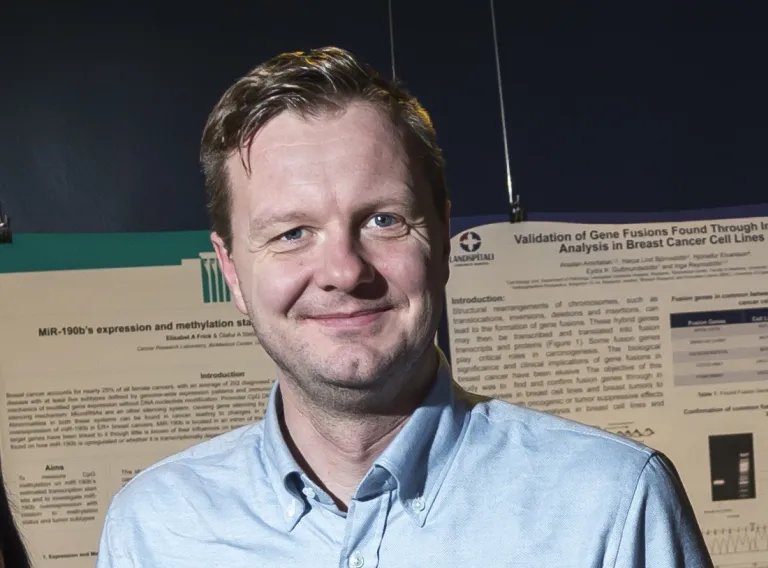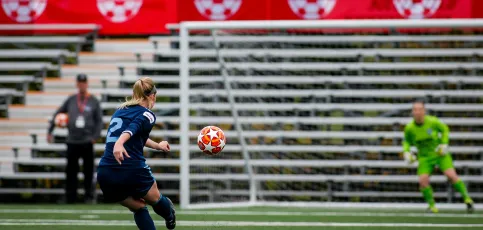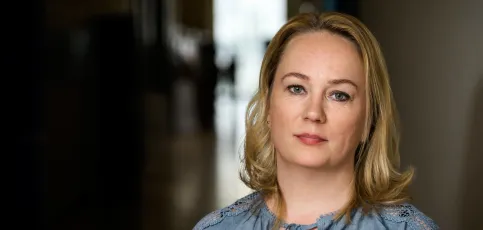
New knowledge created at the University of Iceland has diverse value. Research can lead to discoveries that improve the quality of life for all, in addition to being an asset to tackle diverse challenges such as the threat to the biosphere, peoples' health, rapid changes in technology and upheavals in our environment.
Environmental changes are by many considered the main challenge for the human race in the decades to come. Research scientists have time and time again pointed out that the consequences of environmental changes can transform living conditions here on earth for the worse.
The new Strategy of the University of Iceland, UI26, emphasizes environmental issues and a joint effort to achieve the UN Sustainable Development Goals on a broad level. The strategy covers carbon footprint which is used to measure the results of the goal in sustainability in university operations, especially in the field of transportation.
What is this carbon footprint everyone is talking about? Carbon footprint is a kind of a metaphor reflecting the impact of something or someone; e.g. an individual's, or the production or consumption of a certain product on the earth's climate over whole year. The carbon footprint thus reflects the total emission of greenhouse gases caused by a certain element on an annual basis. The carbon footprint is in fact the footprint left by a certain factor in the same way we leave a footprint on the ground.
Mapping Icelanders' carbon footprint
Þórhallur Ingi Halldórsson, professor of nutrition at the University of Iceland, is currently mapping the carbon footprint caused by Icelanders' dietary regime and analysing what factors are the most prominent.
"We are studying where we can implement sustainability better into dietary recommendation," says Þórhallur Ingi. "Such recommendations are currently only based on health, not sustainability."
Here Þórhalur mentions sustainability, another vital concept in the study. Sustainability not only applies to the environment, but also social justice, health and well-being, culture and economy. Behind it lies the knowledge of the limits nature sets the human race. We must not extract more from natural resources than nature can fully renew. This implies the ideology to turn the Earth over to the next generation better than it was received.
Þórhallur says that he and his team are concurrently mapping the carbon footprint of domestic food production in order to see what can be improved in the process with a view to greenhouse gas emission and other factors.
"Food production currently has a large and powerful impact on greenhouse gas emission; both directly and indirectly," says Þórhallur and talks about clearing of forests and destruction of the environment for agriculture and food production.
"It has been evident for a long time that sustainability must weigh heavier in how we produce and consume food. It is widely discussed but little is done about it. Those of us involved in this project believed that we can gather important data as an input into this discussion and strategic planning, but also to develop methodology in this field. We also study consumer sentiment and the economic impact of making production and consumption sustainable."
Working for international institutions such as WHO and EFSA
Þórhallur Ingi has, for the past six years, worked hard for international agencies such as the European Food Safety Authority (EFSA) and the World Health Organisation (WHO) on issues concerning food safety, as well as providing varied consultation and research for domestic and international institutes. Þórhallur places more and more emphasis on including different fields of study in his projects and research. He believes that interdisciplinary collaboration is the key to success in research; when diverse factors are taken into account as is the case in his latest ones on sustainability and the carbon footprint. It is not possible to solve with one discipline or its viewpoints. This is in line with the the new strategy at the University of Iceland where the emphasis is on working across schools, and eliminating hindrances for the collaboration of diverse fields of study.
"What is so important in this research is that those who lead this with me have much more knowledge in various fields concerning the project, such as sustainability, nutrition, food production and various aspects of social sciences and economics."



